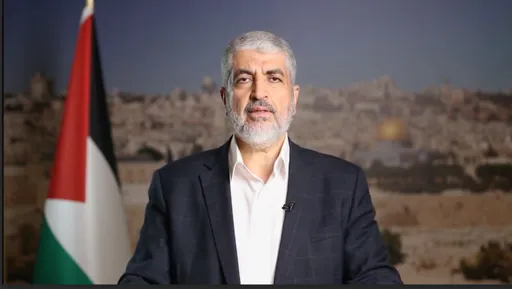Russia's claims about secret American biological warfare labs in Ukraine are taking root in the US too, uniting Covid-19 conspiracy theorists, QAnon adherents and some supporters of ex-President Donald Trump.
The Russian claim relies on some truths: Ukraine does maintain a network of biological labs dedicated to research into pathogens, and those labs have received funding and research support from the US.
But the labs are owned and operated by Ukraine, and the work is not secret. It's part of an initiative called the Biological Threat Reduction Program that aims to reduce the likelihood of deadly outbreaks, whether natural or manmade. The US efforts date back to work in the 1990s to dismantle the former Soviet Union’s program for weapons of mass destruction.
“The labs are not secret,” said Filippa Lentzos, a senior lecturer in science and international security at King’s College London, in an email to the Associated Press. “They are not being used in relation to bioweapons. This is all disinformation.”
Contrary, US blames Russia that it might use chemical or biological weapons during its incursion on Ukraine.
READ MORE: UNSC to discuss Russia's claims of US biowarfare labs in Ukraine
Russian media
Many of the accounts posting the claim are citing Russian outlets as sources. When Kremlin officials repeated it on Thursday, saying the US was developing bioweapons that target specific ethnicities, it took a few minutes for their quotes to show up on American social media.
Several Telegram users who cited the comments said they trusted Russia over American journalists, or their own democratically elected officials.
“Can’t believe anything our government says!” one poster wrote.
Others cited the claim while repeating Russia's talking points about the assault.
“It’s not a 'war,' it’s a much needed cleansing,” wrote a member of a Telegram group called “Patriot Voices” that is popular with supporters of Trump. “Ukraine has a ton of US govt funded BioWeapons Labs that created deathly pathogens and viruses.”
US media
Television pundits and high-profile political figures have helped spread the claim even further. Fox News host Tucker Carlson devoted segments on his shows on Wednesday and Thursday to promoting the theory. On Wednesday, Donald Trump Jr. said the claims around the labs were proven to be a “fact” in a tweet to his 7.3 million followers.
Both Carlson and Trump misrepresented congressional testimony from a State Department official saying the US was working with Ukraine to secure material in the biological labs, suggesting that the labs were being used for illegitimate purposes.
It’s not surprising that a biological research center would contain potentially hazardous material, however. The World Health Organization said on Thursday that it has asked Ukraine to destroy any samples that could pose a threat if released, either intentionally or accidentally.
“Frankly, this influence campaign is completely consistent with longstanding Russian efforts to accuse the United States of sponsoring bioweapons work in the former Soviet Union,” US Director of National Intelligence Avril Haines said on Thursday during testimony before the Senate Intelligence Committee. “So this is a classic move by the Russians.”
Chinese media
The claims have also been picked up by Chinese state media, and were further amplified this week by China's Foreign Ministry, which repeated Russia's claim and called for an investigation.
Milton Leitenberg, an arms control expert and senior research associate at the Center for International & Security Studies at the University of Maryland, noted that Russia has a long history of such disinformation. In the 1980s, Russian intelligence said that the US created HIV in a lab.
Leitenberg said numerous Russian scientists had visited a similar public health lab in the republic of Georgia, but that Russia continued to spread false claims about that facility.
“There’s nothing they don’t know about what’s taking place there, and they know that nothing of what they claim is true,” Leitenberg said. “The important thing is that they know that, unquestionably.”
READ MORE:China seeks details of 'US-run biolabs' in Ukraine























